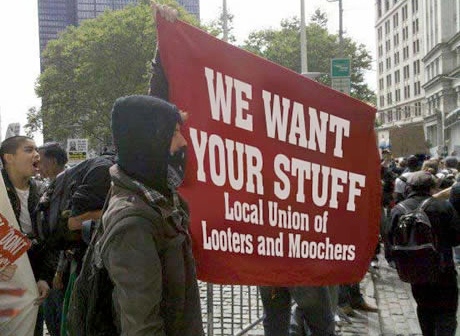What does “the American Dream” mean to you? When I was growing up, I saw it as the opportunity that everyone had to build a better life for himself. We defined it as having a comfortable, affluent life and a happy family, but it was very definitely an opportunity — a chance to create a Horatio Alger story in real life.
Today, the idea that poor people can raise themselves out of poverty and into middle-class security and comfort through their own work and determination is considered a myth by many, especially those on the progressive left. They believe that those born into poverty can’t do anything about it. They believe that someone has to give something to those people or they’ll never have anything. The people who believe this have spent most of the last hundred years slowly getting that idea into the public consciousness.
Jack Chambless is an economics professor at Valencia College in Orlando. On the first day of class last fall, he asked 180 students to take 10 minutes to write an essay about what the American Dream was to them and what they expected the federal government to do to help them achieve what they wanted. The results were frustrating, but not surprising.
They all pretty much wanted families, good jobs, houses and money to have comfortable lives. There was nothing surprising there. But when it came to what they expected from the government, the vast majority wanted something for nothing. Among the samples Chambless quotes in his article about the experiment:
- “pay for my tuition”
- “provide me with a job”
- “give me money for a house”
- “make sure I get free health care”
- “pay for my retirement”
- “raise taxes on rich people so that I can have more money”
In other words, most of these students expect other people to give them things. They want something for nothing.
We have a very basic economic and social conflict in this country today. One side believes that everyone has a right to live his own life and to enjoy the benefits of his actions and also pay the price of his decisions. The other side sees most people as passive creatures who can’t be anything, do anything or have anything unless the state takes something away from someone else and gives it to them. It’s the second group who have increasingly established the norms and set the philosophy for our society. They’ve controlled the ideas behind education. The results have been teachers, lawyers, politicians, ministers and other people in positions of influence who have slowly shaped the opinions you see in this survey.
In an interview with Fox News — which you can see below — Chambless said that roughly 10 percent of the students answered that they didn’t want or expect anything from the government, which is what I’ve been telling you is roughly the percentage of people in our society with libertarian ideas. To that 10 percent — and to most of us here — it’s immoral to take from some people against their will and give it to others. The fact that we’re in such a minority is why we will never have a free society through the election process. Even if you believe the majoritarian system is moral — which I don’t — people don’t want what we want.
If you believe that other people owe you something, you’re a moocher. Whether you realize it or not, what you want is theft, no matter what high-minded words you use to describe it instead.

 Could we solve tough problems if we didn’t know they’re difficult?
Could we solve tough problems if we didn’t know they’re difficult? Is AI software a useful tool or does it dictate how I see myself?
Is AI software a useful tool or does it dictate how I see myself? Baby girl murdered by own father is reminder to stay away from abusers
Baby girl murdered by own father is reminder to stay away from abusers